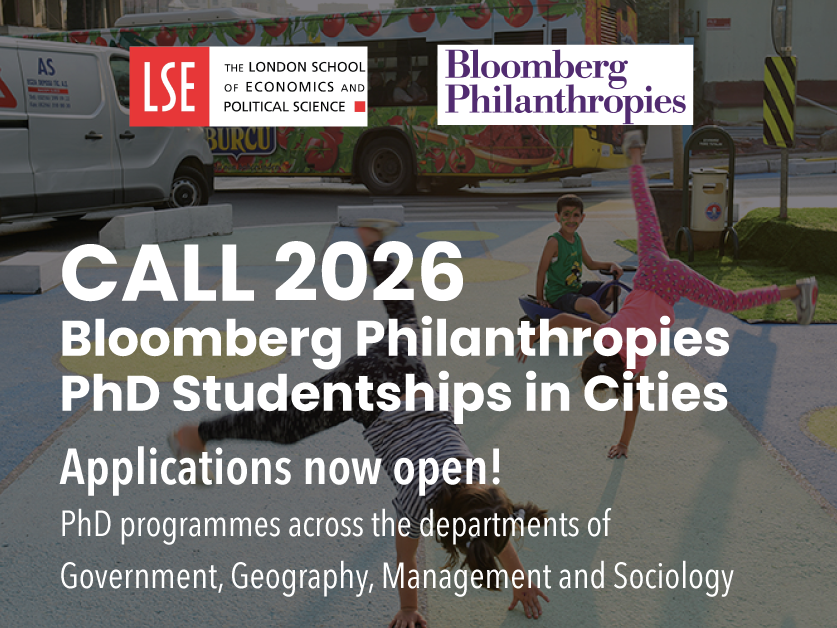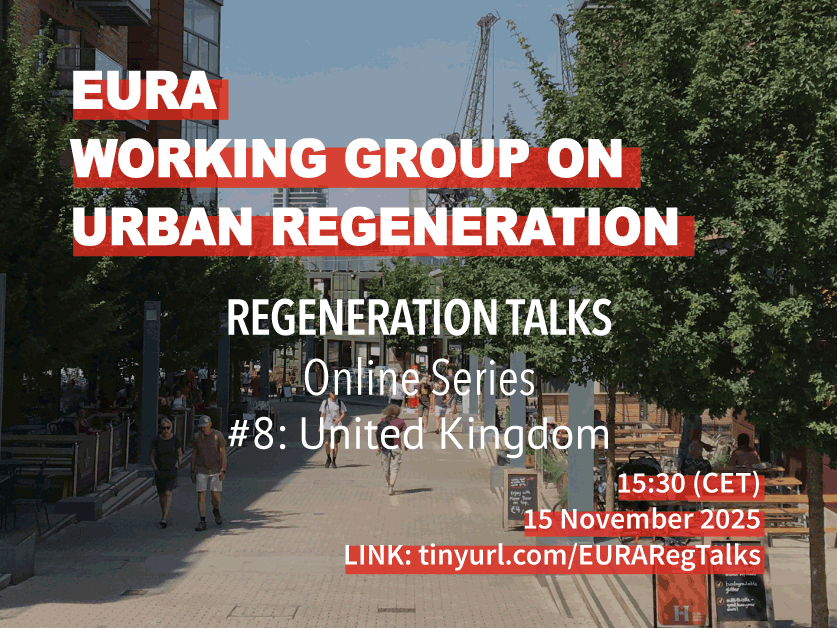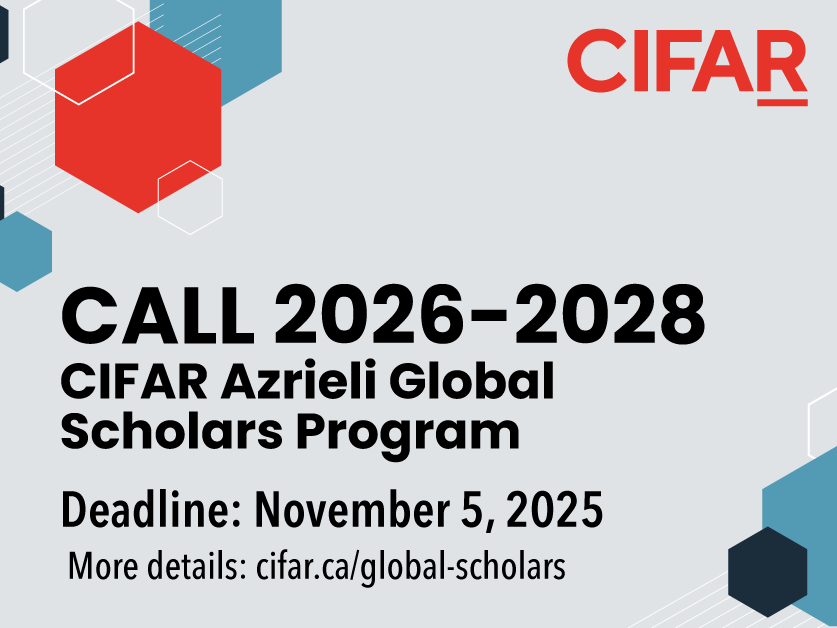
Urban Research & Practice – Call for papers
12/09/2025
CIFAR Azrieli Global Scholars – Call for Applications 2026/28
27/09/2025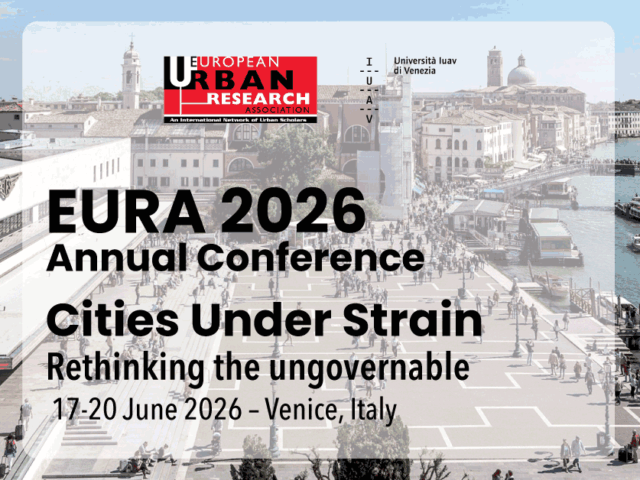
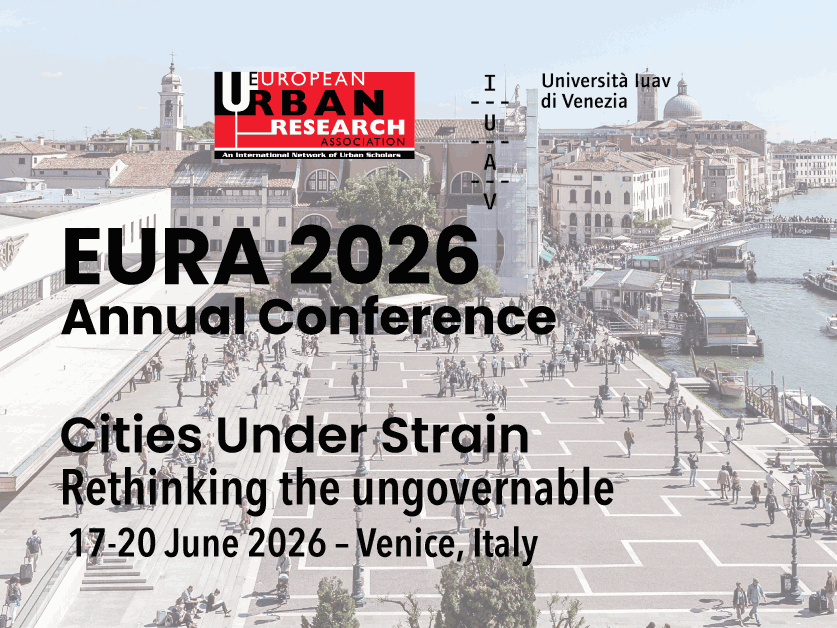
EURA 2026 CONFERENCE
First announcement • Save the date
We are glad to finally announce the first official details of the EURA 2026 Annual Conference!
Dates: 17–20 June 2026
Location: Venice, Italy
Organised by: IUAV University of Venice
Theme: “Cities Under Strain: Rethinking the ungovernable”
Key dates: Abstract and Special Sessions deadline Late December 2025 – Notifications of acceptance Early 2026
Tracks: See the full list below
Format and Language: In-person, English
Check the official conference website for all details.The Conference Theme
How can cities and territories cope with instability, disorder, and radical uncertainty in an era of turbulence, when traditional dualisms (living/inanimate, human/non-human, nature/technology, reality/cognition, centre/periphery, urban/rural) are increasingly dismissed? How can they “ride” the uncontrollable and take advantage of being carried by it?
Major environmental, social, and economic transitions have been identified (due to climate change, global migration and refugee flows, financial crises, and the emergence of a deeply unstable geopolitical situation. However, their interconnections and modes of coping are still poorly understood, and there is still insufficient research and experimentation on how to address them in public policy, also because of their irreducible trans-scalar dimension. New keys are needed to understand how cities and territories work.
In this situation, where governance is fragmented and often conflict-ridden, what actions end up blocked? What actions get through? What are the pathways through which innovation travels? What are the new levers for constructing actions capable of confronting the current urban and territorial situation?
The conference aims to encourage critical reflection on the links between environmental, social, and spatial justice; between institutional action and the agency of citizens and their organisations; and between different kinds of knowledge from the perspective of more than human agency in cities and territories.
EURA 2026 Conference Tracks
-
Track 1: Inequalities
The impact of growing social and economic inequalities in cities and territories is increasingly visible. Ensuring a more equitable future for all is a major challenge and an ethical imperative for urban researchers.
-
Track 2: Housing
Housing affordability is progressively affecting different population groups, including the poor and the middle class. Identifying links with the dynamics of privatisation of urban space and the presence of transnational super-rich can shed an alternative light on this issue.
-
Track 3: Migration flows
Addressing issues of arrival neighborhoods, migrant settlements and refugees’ camps in urban and rural areas can be an opportunity to build an equity agenda in urban studies.
-
Track 4: Environmental transition
The steady increase in climate change-related disasters requires territorial (and local) governments to face a growing demand to revise mitigation and adaptation protocols. The research focus areas in urban sustainability are broad and diverse, including quality in construction, urban regeneration and the nexus approach.
-
Track 5: Risk and hazard management
Urban governance models are required to update resilience strategies with respect to phenomena such as the spatial convergence of different impacts and vulnerabilities. The complex vulnerability domains also require new computational technologies and a clear definition of ‘spatial knowledge’ associated with different hazards.
-
Track 6: Governance
The current uncertain, fragmented and conflicting times require new keys to understanding how cities work and to recognize the pathways through which innovation makes its way within new governance frameworks and arrangements involving civil society, public institutions and public/private agencies.
-
Track 7: Knowledge intersections
The development of new languages and methodologies beyond traditional academic boundaries is necessary to address complex contemporary issues through interdisciplinary (or transdisciplinary) approaches. Integrating different forms of expert and local knowledge is also an important part of the role of universities in public engagement.
-
Track 8: Heritage under overtourism
In the face of current social and economic dynamics, the meaning of heritage is changing, ranging from institutional recognition to processes of ‘patrimonialisation’ through citizens’ initiatives. Meanwhile, heritage sites are suffering from the pressures of overtourism. Historic cities are losing their social fabric as they are absorbed by the tourist industry, leaving them beautiful but empty shells.
-
Track 9: Mobilities
The mobility of people between fragmented territories is a key issue in reducing social exclusion and promoting accessibility to the main activities of economic, political and social life. Innovative approaches and sustainable practices are emerging that address the challenges of both proximity and connectivity.
* Track titles subject to change. Track chairs TBC.
Stay tuned!
First announcement & invitation. Much more information is coming soon — including the full programme, keynote speakers, submission guidelines, registration, and practical details.
Save the date. Please mark your calendars and keep an eye on this page and the official EURA channels for updates.


